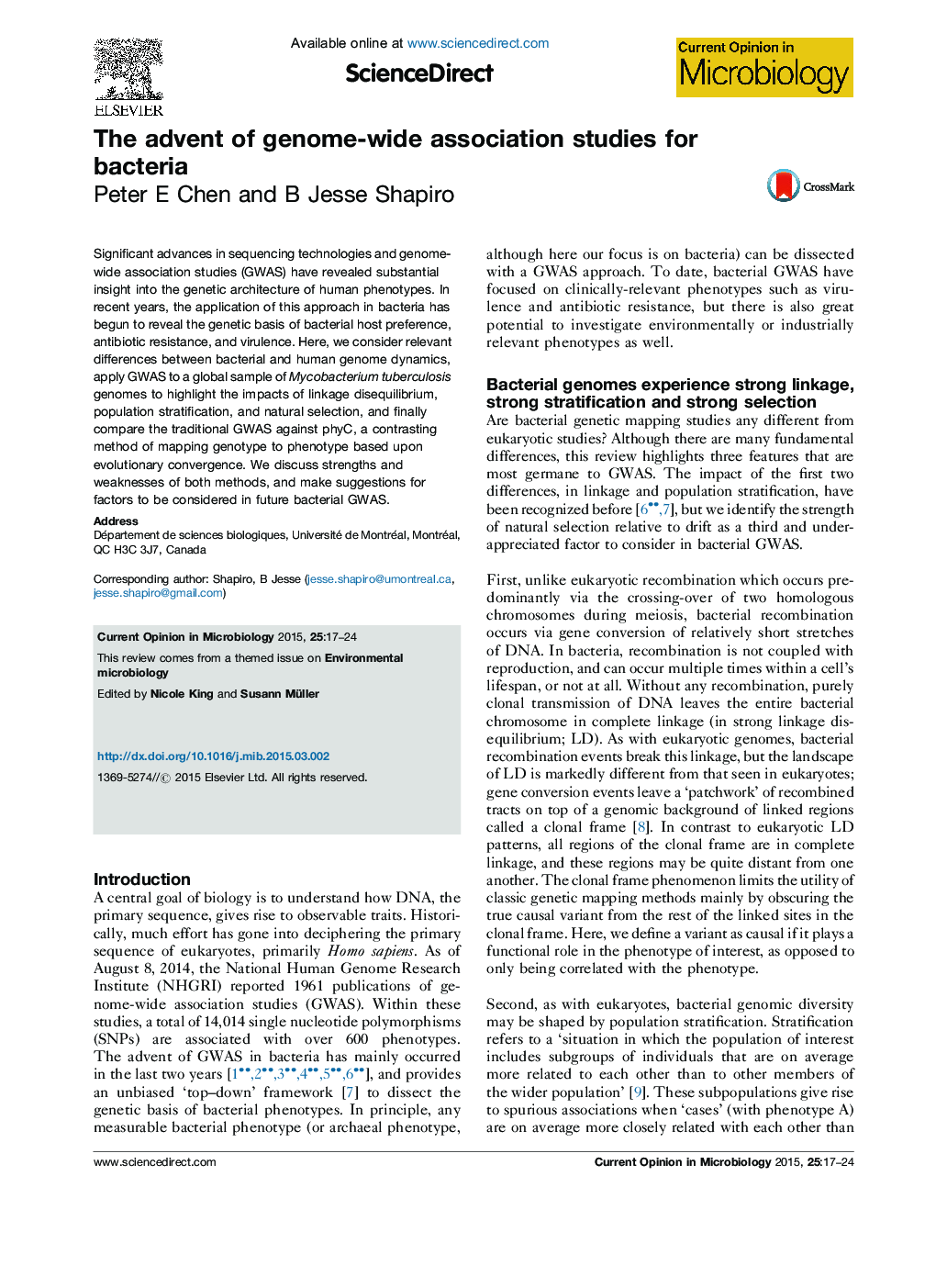| Article ID | Journal | Published Year | Pages | File Type |
|---|---|---|---|---|
| 6131752 | Current Opinion in Microbiology | 2015 | 8 Pages |
Abstract
- The advent of the genome-wide association study (GWAS) approach provides a promising framework for dissecting the genetic basis of bacterial or archaeal phenotypes.
- Bacterial genomes tend to be shaped by stronger positive selection, stronger linkage disequilibrium and stronger population stratification than humans, with implications for GWAS power and resolution.
- An example GWAS in Mycobacterium tuberculosis genomes highlights the potentially confounding effects of linkage disequilibrium and population stratification.
- A comparison of the traditional GWAS approach versus a somewhat orthogonal method based upon evolutionary convergence (phyC) shows strengths and weaknesses of both approaches.
Related Topics
Life Sciences
Immunology and Microbiology
Microbiology
Authors
Peter E Chen, B Jesse Shapiro,
